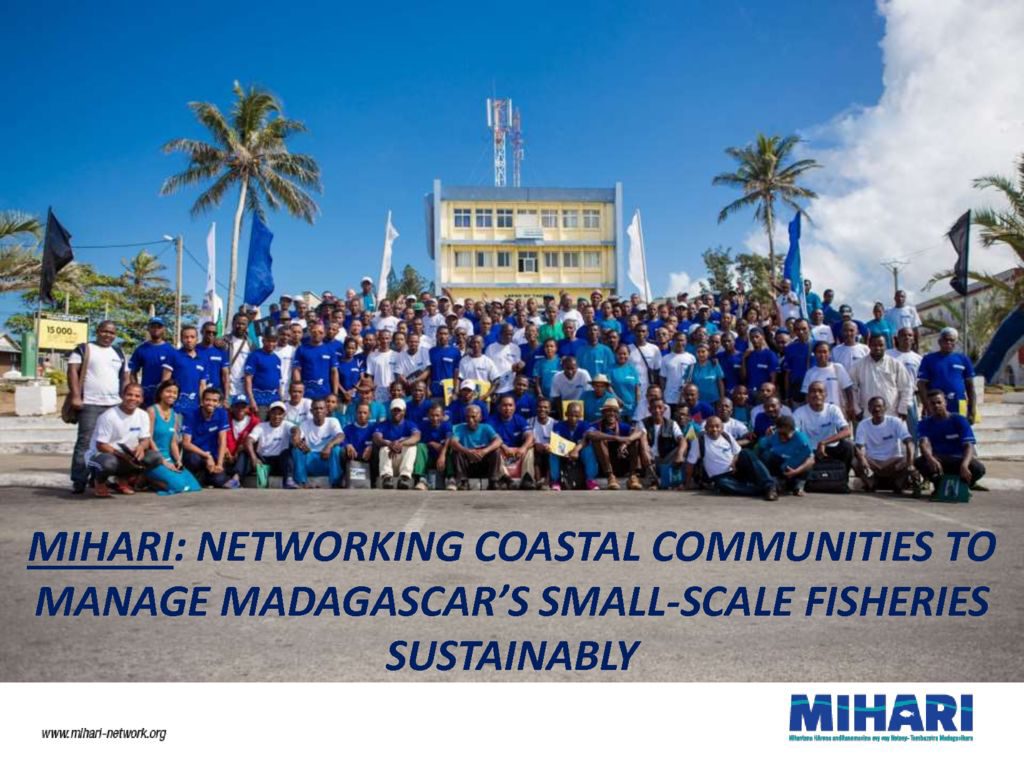05 Mar Networking Communities
Empowering communities in resources management and conservation has now become a trend. However, due to remoteness and isolation, many rural communities have limited opportunities to communicate and share with each other. Not only are they facing different challenges and external pressures, but they also barely get their voices heard. The effectiveness of community networks, as both a tool to bring together a community and a stronger civil society, is emerging as an important agent of change. Networks give space for community leaders to engage in a sound forum and discuss their ideas and share successful models through peer-to-peer learning. Working together as a whole, individual voices are amplified, and thus communities become stronger through an empowered network.
MIHARI is a network that brings together the vulnerable coastal communities of Madagascar, helps them manage their marine resources and take their future in their own hands. Established in 2012 to exchange learning and experiences across Madagascar’s growing movement of communities developing local marine and fisheries management initiatives, MIHARI now represents over 150 sites, collectively covering over 14% of the island’s inshore seabed. Fisher exchanges are a powerful tool in the spread of fisheries management practices and governance while forums and exchanges build leadership and engagement in management efforts. In this session, the MIHARI Network, which advocates for the fundamental human rights of small-scale fishing communities, leveraged the power of a community gathering in order to:
- Understand the challenges encountered by communities in resources management and conservation
- Identify the existing international civil societies that can support communities and community networks
- Evaluate how different stakeholders (networks, consortiums, civil societies, NGOs, government, private sectors, etc.) can support community initiatives



